2019

13/12 2019
rape enters the scene
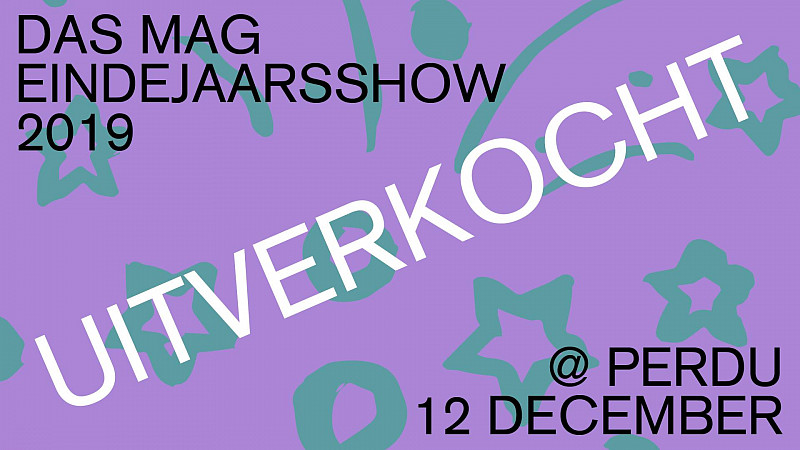
12/12 2019
De Das Mag Eindejaarsshow
Gastprogramma [uitverkocht]

7/12 2019 — 8/12 2019
Tafelzuur
Gastprogramma van Theatergroep Zout
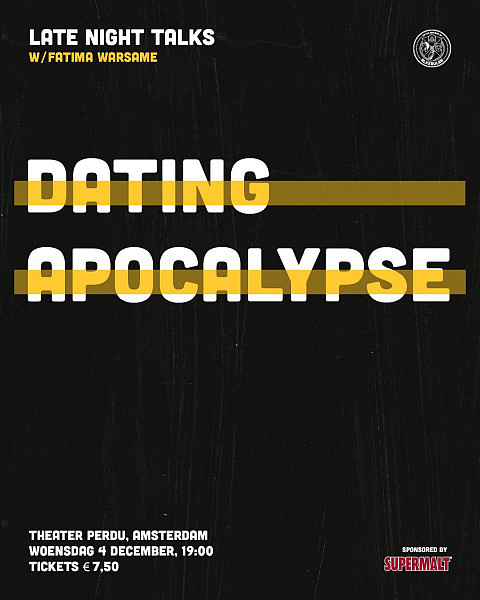
4/12 2019
Dating Apocalypse
Gastprogramma: Late Night Talks w/ Fatima Warsame

29/11 2019
One thousand milligrams vitamin C
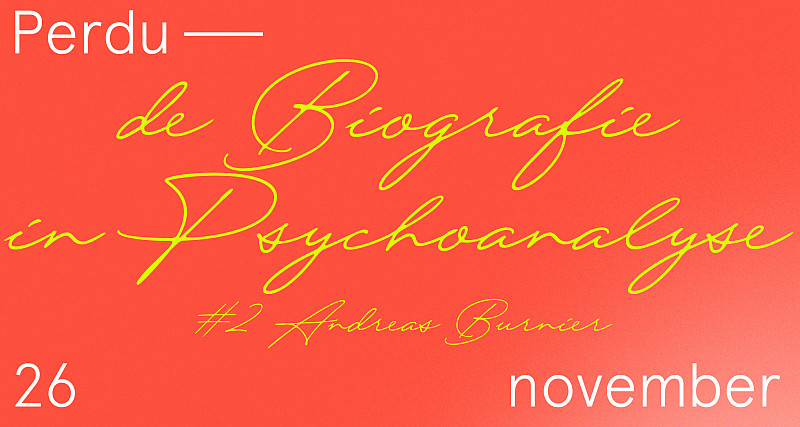
26/11 2019
De biografie in psychoanalyse
Elisabeth Lockhorn over Andreas Burnier
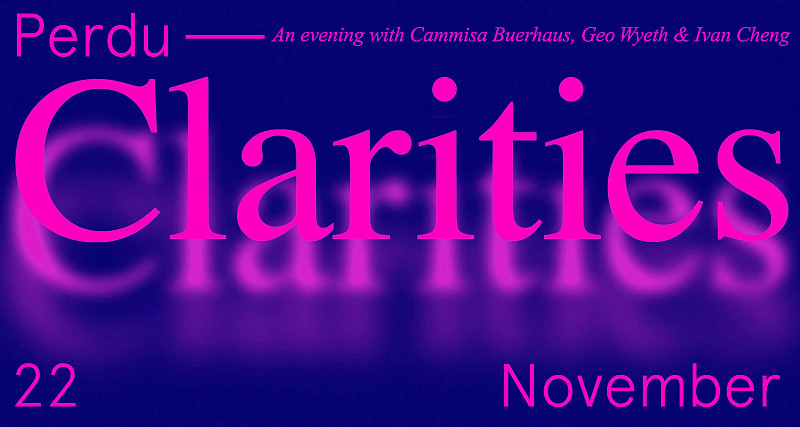
22/11 2019
Clarities
an evening with Cammisa Buerhaus, Geo Wyeth,
and Ivan Cheng
15/11 2019
The Worlds and Works of
Janelle Monáe
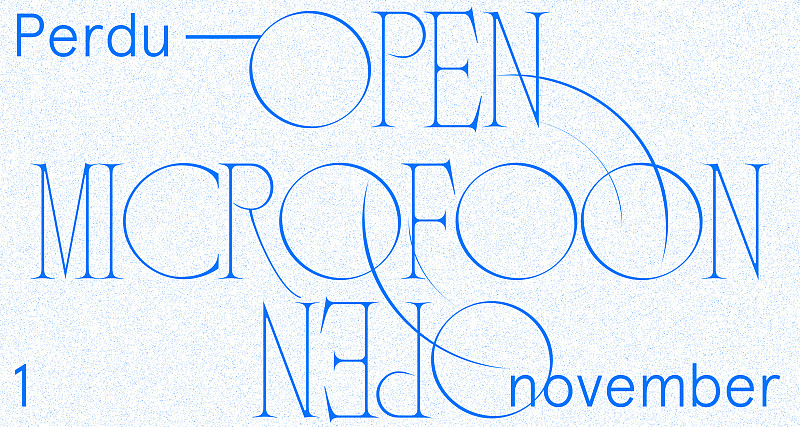
1/11 2019
Open Microfoon
Perdu's tweede open mic!
20/10 2019
Radical
Read-in
A Sunday afternoon in Black Achievement Month
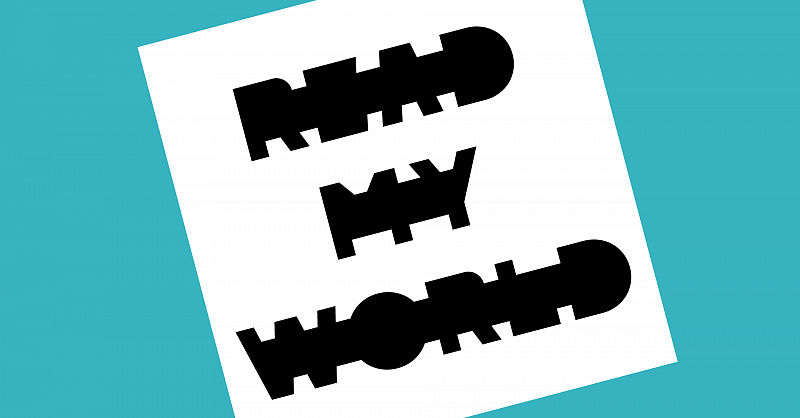
12/10 2019
An Intimate Approach
Perdu tijdens Read My World
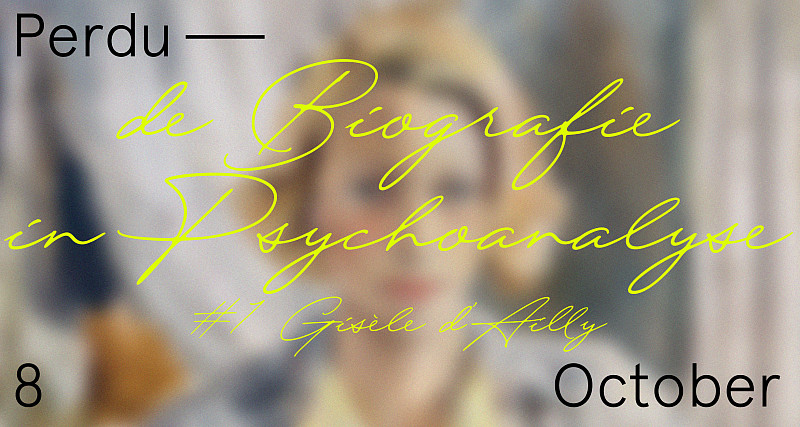
8/10 2019
De tijdgeest duiden
De Biografie in psychoanalyse
27/9 2019
The Currents
Een gesprek over gemeenschap, kritiek en herkenning
28/6 2019
Ageing Versus Immortality
EINDFEEST: 35 JAAR PERDU!
27/6 2019
Eindpresentatie schrijfworkshop
21/6 2019
'Cause the written word is mineral
Charles Bernstein and Susan Bee return to Perdu!
19/6 2019
[FULLY BOOKED] Radical Read-In with Eileen Myles + Screening 'The Trip'
11/6 2019
[SOLD OUT] Something unearthly about today
An evening with Eileen Myles
7/6 2019
Belonging in the Mess II
Repercussions of a Malfunctioning System
31/5 2019
Mona Kareem & Momtaza Mehri
On Lineage and Lingua
30/5 2019
Perdu X Marché de La Poésie
24/5 2019
World is Constantly Touching
Op zoek naar de kritische mogelijkheden van intuïtief werk
22/5 2019
Rosily I Will Squander Myself
An evening with Lisa Robertson and Mia You
17/5 2019
Thinking through (to) the end of the world
Life before, during and after the apocalypse
10/5 2019
A Flower Garden of All Kinds of Loveliness Without Sorrow
A programme guest-curated by artist Christian Nyampeta
3/5 2019
Found in Translation
A programme guest-curated by Urok Shirhan
19/4 2019
Vers van het Mes XXXIX
Perdu, deBuren en de Nwe Tijd slaan wederom de handen ineen voor een nieuwe editie!
12/4 2019
Open microfoon
Perdu's allereerste open mic!
6/4 2019
Beyond the Sentence – Stein as Open Text
A co-production of Gertrude Stein European Network, Perdu and Institute for Cultural Inquiry (ICON)'s Modern and Contemporary Literature Research Group (Utrecht University)
5/4 2019
Longing for, in the mud
Looking for liminality in abjection
29/3 2019
Onze * Tori
Perdu i.s.m. The Black Archives: Woordkunst over verborgen verhalen
22/3 2019
Onder dieren
Hoe verhouden we ons tot dieren? Of beter gezegd: tot andere dieren?
15/3 2019
Poem as storm, not as refuge
Poëzie als interventie
8/3 2019
Historical Debris
Collecting the leftovers of history
1/3 2019
Am I lovely? Of course!
Drie Russische dichters te gast + presentatie Tijd van de aarde van Galina Rymboe
22/2 2019
Perdu Leest Langzaam #7
We lezen de nieuwe bundel van Anneke Brassinga: Verborgen tuinen
15/2 2019
Perdu Invites: Twee Roemeense dichters
Met Doina Ioanid, Claudiu Komartin en hun vertaler Jan H. Mysjkin
8/2 2019
The Worlds and Works of Octavia E. Butler
De derde avond in onze sciencefictionreeks!
31/1 2019
30+30 Dichtersmarathon 2019
DIT EVENEMENT IS UITVERKOCHT!